Have you ever wondered how to study effectively? Essay writing, active learning, and efficient memorizing require a strategic approach. This article aims to answer the question that interests many students:
How to study smart?
Effective studying comes from regularity and consistently implemented habits. If you want to make the best of your time spent learning, you have to detect study tips that work for you.
Below, you will find a guide on how to study effectively, essay writing and memorizing tips, together with tricks for managing your anxiety.
💪 Student superheroes
You have probably heard of the trait theory of leadership. According to it, some people are born to become leaders. They just have some features in their blood.
Such students have numerous advantages compared to others as they can:
- acquire information quicker,
- study for exams faster,
- pass tests without being nervous.
Maybe some people are born to be the best. Yet, it is total nonsense to say that all students who spend less time studying belong to this group of people.
The successful passing of exams depends on understanding how learning works. Studying is a skill, and cramming all night before the exam is not a secret ingredient of success.
🙌 Path to success
Having good study habits presupposes knowing your strengths and weaknesses, using different study methods, and organizing the process. One can acquire valuable skills by paying attention to the organization of the process of learning first.
Your strategy should include the following steps:
- Preparation for studying;
- Time-management;
- Learning and memorizing;
- Controlling test anxiety.
🏁 Be ready!
Effective studying never starts from opening the book. It requires the whole organization process to take place before anything. Thus, before studying, you have to prepare yourself and your study materials.
1. Set goals
First of all, you should prepare for your study by setting goals. They are necessary to make you keep going. Don’t underestimate their power.
Be sure that:
- You know why you are studying. It can be for scraping through the exam, finishing college, getting good grades, satisfying your parents, or having professional knowledge for your future career. No matter what your goal is, it should be an impetus for studying;
- Your goals are achievable. You should be able to achieve them within a particular period of time and with substantial effort. No need for making over-optimistic promises — be realistic!
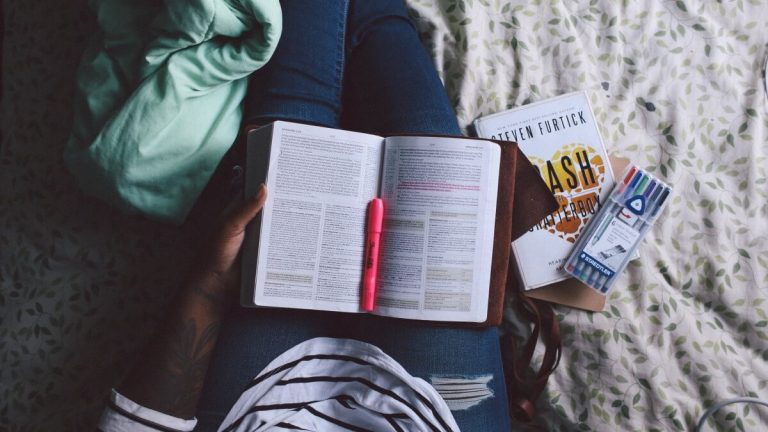
2. Choose the place for studying
This decision is up to you alone. You should find a place where you feel comfortable (but not comfortable for sleeping). Some people can study with background music, while others need silence.
You will know how to study smart with some of these tips:
- Light matters. The place you have chosen should be well lit. Areas with poor lighting are more likely to make you sleepy;
- Noise matters. If you need background noise, you may go to the café or turn on some music. Meanwhile, a library may be the best option for people who prefer absolute silence.
- Time matters. You should not make yourself wake up early in the morning and study just because it works for that friend of yours. If you are a night owl, feel free to study in the evening.
3. Avoid distractions and boost productivity
Numerous things that you use are invisible thieves of your energy and concentration:
- Studying while the television is on may result in constant distraction from thoughtful reading.
- The same is true with your smartphone. Answering incoming calls leads to wasted time. As a result, you become tired before you have managed to study anything.
- The Internet is probably your enemy as well. If you need a computer, close all social media, and concentrate on your task.
What’s the bottom line?
You can boost productivity in many ways. It can be drinking coffee or listening to classical music. You should know what makes you active and use it for your studying.

4. Stay motivated
Attitude and mindset play a crucial role in successful and easy studying. ‘I don’t feel like studying’ is a widespread reason to avoid doing something worthwhile. Follow these easy recommendations, and you will be impressed at how they will change your attitude towards studying:
- Don’t underestimate yourself. Remind yourself that you have the necessary study skills and can achieve anything. You should always be your greatest supporter.
- No negative thinking. Thoughts like, ‘I will never do it,’ ‘I can’t stand doing it anymore, ‘I’m a total failure, I will fail it for sure’ are not acceptable if you want to pass your exam.
- Don’t compare yourself to others. Thoughts like, ‘I bet that Meggy has already studied half of the book’ is an unnecessary distraction. Such ideas only increase your dissatisfaction and demotivate you.
In essence, attitude towards learning habits and upcoming exams is what differentiates quick learners from others in most cases. Self-confidence is a great determiner of success.
⏱ Manage your time
The proper division of time is one of the most critical study tips. The disorganization and constant putting off until tomorrow are two major problems.
5. Avoid procrastination
Currently, putting away tasks for later seems to be one of the most pressing problems for students. A study of procrastination among students has shown that 80-95% of students procrastinate. Most of them justify that fact by stating that working under pressure improves their efficiency. However, the study results have demonstrated that there is a connection between low GPA and procrastination habits.
To avoid it, you should:
6. Schedule every hour
If you want to know how to study effectively, you have to manage your time correctly. It is halfway to success. If you doubt whether you are a procrastinator, do this test to find out.
Yet, our tips on time management can be helpful regardless of the results:
- Make a to-do list. Nothing can be easier than writing down everything you have to do. Make a list of all your tasks and give them deadlines. Then, write down the assignments with the shortest deadlines first. Classify these as urgent depending on their priority. Lastly, make a final list of what should be done first.
- Use a tool for organizing. It can be an app on your phone or a calendar with crucial tasks circled in red. You should find the most efficient way to remind yourself about the upcoming deadlines.
- Count every minute. Be precise when planning your schedule. Think about the necessary amount of time for the particular task, and don’t overvalue your possibilities. Always take into account potential delays and leave time for planning.
In fact, students are expected to spend 35 hours a week studying. Check how many hours you need to attend all classes. Then, use the rest of the time for independent work.
📖 Learning and memorizing
Some students tend to try different memorizing techniques without considering their learning style. For example, a student needs to hear the information they want to remember. In this case, highlighting essential parts of the text won’t be as efficient as it is for a visual learner.
That’s why:
7. Know your learning style
Identify your learning style and choose appropriate techniques for study. People are generally divided into three types of learners:
- Visuals are those who learn by seeing something. Highlighting does work for such people.
- Auditory learners who prefer listening. It is advisable for this type of learner to speak with others, read aloud, or record themselves.
- Tactile learners learn something new by doing it. They need to practice if they want to memorize the theory.
If you are not sure about your learning style, follow this link and find it out by answering these simple questions.
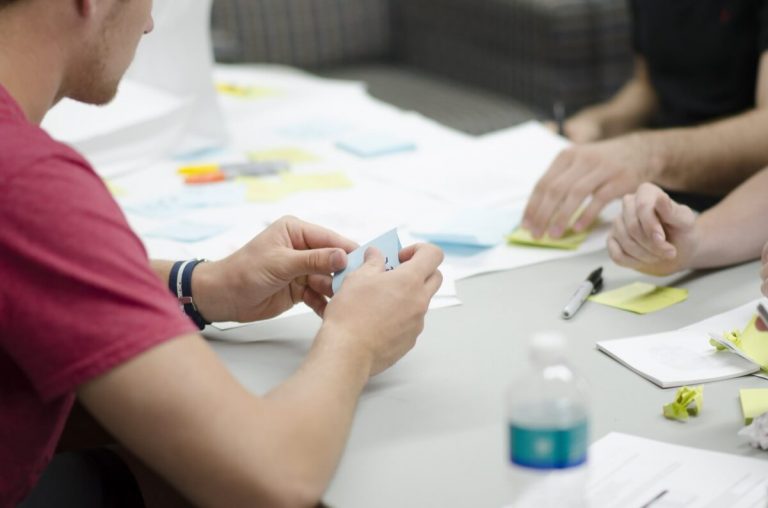
8. Use different study tips for memorization
You have chosen a place for study, got rid of all distractions, and evaluated the urgency of your tasks. Half the work is done. Now it is time to start working on your study habits. Many articles emphasize the significance of such techniques as visiting lectures, making notes, or reading before bed.
Such study tips are helpful, but they are not universal. They don’t work for every single student. That’s why you have to try out and implement different recommendations at the same time.
Here are some creative techniques for study:
- The system of rewards. Promise yourself that you will buy that fancy dress or watch (or anything else you want) after passing the exam. This type may be classified as a long-term extrinsic motivator. Also, you can make the process of studying more pleasant by giving yourself little treats. For example, let yourself eat or drink something delicious when you finish some part of your studying.
- Read upside down. This study habit is efficient if you need to cram something. Yes, cramming is believed to be an ineffective method of studying. Yet, every student knows that sometimes there is no other way out. When you read upside down, you have to focus better. Otherwise, you won’t be able to understand the meaning of the text. Concentrating on something makes you memorize and comprehend it quicker.
- Teach somebody. This method is fantastic, and it works in most cases. When you teach someone, you have to explain the topic. No explanation is possible without understanding. Consequently, you will have to do your best to describe the issue to your friend (or anybody else, including you) so that they can get it.
Also, you can always search a free essay database for either more tips or to get some extra info on the topic you’re studying.
9. Use flashcards
Flashcards are handy for becoming a better learner:
- Write down essential facts using bullet points, different colors and fonts to enhance visual perception.
- Take them with you everywhere you go and don’t miss the opportunity to read them during the so-called ‘dead times’ (waiting for a bus, standing in a queue).
- You can even pin them to your fridge or bathroom mirror. This way, they will always be in your sight.
- Use flashcards in group activities with your classmates.
Moreover, you can keep them on your smartphone or computer by using specific apps! Here are some examples perfect for university and college students:
- GoConqr – with this app, you can use great flashcards made just for visual learning or create your own set. Add images, formulas, and text to make your flashcards.
- Cram – almost 200 million cards for learning online. You can read cards or enable audio records.
10. Use our checklist
Each time you study, you can try different study techniques. For this purpose, keep this checklist around:
Find out more great study habits that are scientifically proved in this video.
😰 Controlling text anxiety
Even for a well-prepared student, anxiety may spoil everything, especially before an exam. Being too nervous may result in poor concentration and, as a result, a bad grade. People who pass exams easily know not only how to study but how to stay calm.
Here are some tips on how to stay relaxed during your test:
11. Read the tasks and use samples
Read all instructions carefully and follow directions exactly. Whether it’s a chemistry, physics, or history test—understanding the task is the most significant start for a successful score.
If you still don’t feel prepared for the test, try out a couple of online exams. Find some test questions that may appear on your future exam.
Finding essay samples on any topic is possible. Analyze them, and you won’t have to develop your own paper from scratch:
- 125 College Essay Examples for 13 Schools + Expert Analysis– an enormous pick of college essay samples for practice.
- Writing Sample Essays – an excellent essay analysis you can use as learning material. You’ll learn what standards to follow when writing a paper.
- Essay Questions – this is an excellent option for those who are struggling with anxiety. All essay questions are fun and exciting to read. They also help you find a creative way of writing on your own.
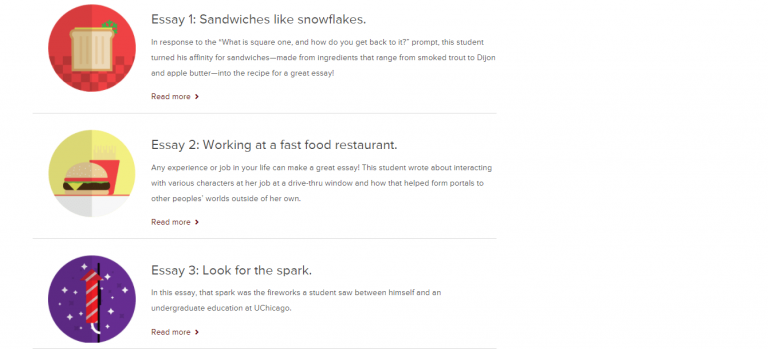
12. Stay positive and healthy
According to statistics, 25% of school students are affected by test anxiety. It doesn’t only affect their academic performance. It impacts health, giving such symptoms as nausea, stomach pain, headaches, and shortness of breath.
Thus:
You can’t let yourself be stressed all the time. Take some time to read workbooks, do exercises, and make other preparations. But then, take some time to relax, eat healthily, have a good night’s sleep, and build your confidence.
13. Breathe
If you feel too worried, try taking slow, deep breaths that will cool you down.
If feelings of panic and anxiety are familiar to you, it’s great to learn the 4×4 breathing technique. Navy SEALs use it and, if performed correctly, it eliminates all the negative signs of anxiety.
To perform it, follow these instructions:
- Inhale for 4 seconds.
- Hold your breath for 4 seconds.
- Exhale for 4 seconds.
- Don’t breathe for 4 seconds.
Repeat until you feel calm and not threatened by a panic attack.
14. Use relaxation and meditation apps
Note-taking, reading scientific resources, or exercising are helpful activities. Unfortunately, they won’t work if you worry too much. That’s why you should install one of these apps on your desktop or smartphone. Such software can turn into quite an excellent strategy for staying calm and passing exams.
Here are some app suggestions:
- Calm helps thousands of people to improve their sleep, perform meditation, and release stress. It allows you to listen to stories by Stephen Fry, Tamara Levitt, and others. You’ll do breathing exercises and experience soothing nature sounds until you’re okay.
- Meditation and Relaxation is an app that includes essential parts of a healthy routine. It takes care of your productivity, calmness, sleep, and happiness. Learn to meditate and do that every day. It will eliminate all anxiety on your way to exam success.
- Aura is a free app for iOS and Android that helps you reduce stress and improve your mood. It includes essential components: a gratitude journal, breathing exercises, mood analysis, and sounds of nature. Track your happiness, meditate, and increase your level in game-like software.
15. Check the video
We can’t fit all the helpful techniques in one article. Therefore, we offer you a video with more valuable ways of coping with test anxiety.
Thank you for reading! We hope that now you know how to study effectively and won’t have any struggles in the future. Share the page with other students who may need these tips.

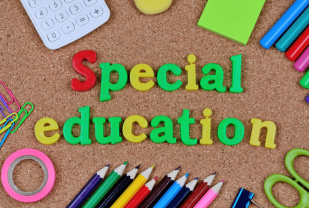
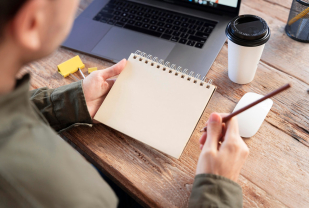
![8 Brain-Boosting Hobbies to Help You Win at Life [Infographic]](https://ivypanda.com/blog/wp-content/uploads/2016/07/use-your-brain-happy-red-haired-girl-holds-both-index-fingers-temples-tries-think-before-acting-stupidly-smiles-happily-dressed-casual-summer-clothes-stands-against-white-wall-309x208.jpg)
Nice article
Thank you, Emmanuel 🙂
Hello
I have been looking for a website, but because of you I have stopped
It’s like you were talking to me
I don’t really have hope that I can ever pass physics or chemistry but now I feel nice
I love your article, don’t STOP!
Hi Seyi,
Thanks for your kind words. Much appreciated!
Good luck on your physics and chemistry classes 🙂